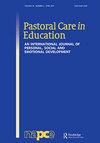Facilitating a positive transition: a case study exploring the factors that support social, emotional and mental wellbeing from primary to secondary school
IF 1.1
Q3 EDUCATION & EDUCATIONAL RESEARCH
引用次数: 1
Abstract
ABSTRACT The transition from primary school to secondary school can be a difficult time for young people, yet little is known about what schools do to support the social, emotional and mental wellbeing (SEMWB) of their pupils during this period. The purpose of this research is to explore the ways in which an urban Scottish secondary school and two of its local feeder primary schools attempt to support their pupils’ SEMWB as they make this transition. A case study design was adopted to create a rich and situated account of teachers’ experiences and perceptions about transition approaches through semi structured interviews. Participants were teachers in the secondary school, a large primary school serving a relatively affluent area and a smaller primary school in a more diverse, less affluent area. Thematic analysis of the data, led to the identification of three inter-connected themes underpinning the ability of schools to support their pupils’ transition effectively: positive relationships, positive communities and positive environments. This suggests that teachers adopt a broadly socio-ecological perspective, viewing transition as a multi-faceted process, in which not only individual pupil characteristics but also social, cultural and relational factors are important. However, within this broad framework, teachers’ precise understanding of SEMWB varied within and across contexts, suggesting the importance of leadership and of a shared understanding, both within each school and across a cluster of schools. Teachers should also be supported to evaluate their initiatives and the impact these have on transition促进积极的过渡:一个案例研究,探讨从小学到中学支持社会、情感和心理健康的因素
从小学到中学的过渡对年轻人来说可能是一段艰难的时期,但我们对学校在这段时间里为学生的社会、情感和心理健康(SEMWB)提供了哪些支持却知之甚少。本研究的目的是探索一所苏格兰城市中学及其两所当地支线小学在学生进行这种过渡时试图支持他们的SEMWB的方式。采用案例研究设计,通过半结构化访谈,对教师的经验和对过渡方法的看法进行了丰富和定位的描述。参与者是一所中学的教师,一所服务于相对富裕地区的大型小学和一所位于更多样化、不那么富裕地区的小型小学。通过对数据的专题分析,我们确定了三个相互关联的主题,这些主题支撑着学校有效支持学生过渡的能力:积极的人际关系、积极的社区和积极的环境。这表明教师采用广泛的社会生态学观点,将过渡视为一个多方面的过程,其中不仅学生个人特征,而且社会、文化和关系因素也很重要。然而,在这个广泛的框架内,教师对SEMWB的准确理解在不同的背景下和不同的背景下都是不同的,这表明了领导力和共同理解的重要性,无论是在每所学校内部还是在学校群中。还应支持教师评估他们的倡议及其对过渡的影响
本文章由计算机程序翻译,如有差异,请以英文原文为准。
求助全文
约1分钟内获得全文
求助全文

 求助内容:
求助内容: 应助结果提醒方式:
应助结果提醒方式:


